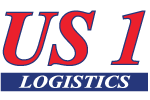A Logistics Agent is a professional who is responsible for coordinating the movement of goods and materials from one location to another. They work in the logistics industry  and are tasked with ensuring that products are delivered to customers in a timely and cost-effective manner.
and are tasked with ensuring that products are delivered to customers in a timely and cost-effective manner.
The job of a logistics agent involves a wide range of responsibilities, including planning and scheduling shipments, arranging transportation, tracking deliveries, managing inventory levels, and communicating with customers and suppliers. They also need to have a good understanding of logistics regulations, such as customs procedures and import/export regulations.
Logistics agents can work for a variety of organizations, including shipping companies, freight forwarders, and logistics providers. They typically have strong organizational and problem-solving skills, as well as the ability to work well under pressure in a fast-paced environment. They may also need to be proficient in the use of logistics software and other related tools.
Is a Logistics Agent more of a Sales or Operations job?
A Logistics Agent job is more on the Operations side of logistics, although there can be some sales-related activities involved as well, especially if you are just starting out or need more freight.
The primary focus of a Logistics Agent is to manage the movement of goods and materials from one location to another. They typically work in operations and are responsible for coordinating transportation, tracking shipments, managing inventory, and ensuring that products are delivered on time and within budget.
However, depending on the organization they work for, a Logistics Agent may also be responsible for generating new business, building relationships with customers and suppliers, negotiating rates and contracts, and other sales-related activities.
Overall, the role of a Logistics Agent involves both operations and sales functions, but the emphasis may vary depending on the specific job requirements and organization they work for.
What are the core skills a Logistics Agent needs?
A Logistics Agent needs a diverse set of skills to succeed in their role. Some of the core skills required for this profession include:
- Organizational skills: Logistics Agents need to be highly organized to manage multiple shipments, transportation modes, and timelines at the same time.
- Communication skills: Effective communication with suppliers, customers, and other stakeholders is essential in this role. Logistics Agents need to be able to communicate clearly and professionally both verbally and in writing.
- Problem-solving skills: Logistics Agents must be able to quickly identify and solve problems that arise during shipments, such as delays or transportation issues.
- Attention to detail: A small mistake in logistics can have significant consequences, so Logistics Agents must be detail-oriented and able to spot errors before they become bigger problems.
- Analytical skills: Logistics Agents need to analyze data related to transportation routes, rates, and inventory levels to make informed decisions and improve the efficiency of logistics operations.
- Technical skills: Logistics Agents must have a good understanding of logistics software and other tools used to manage transportation and inventory.
- Time management: Effective time management skills are essential for Logistics Agents to prioritize tasks and manage multiple shipments simultaneously.
- Customer service skills: Logistics Agents need to build relationships with customers and provide excellent customer service to maintain business relationships and secure future orders.
Overall, a successful Logistics Agent needs a combination of these skills to effectively manage logistics operations and deliver quality service to customers.
If you need you need customers, what is a good way to find them?
There are several effective ways to find customers for a logistics business, some of which include:
- Networking: Attend industry events, trade shows, and conferences to network with potential customers and other professionals in the logistics industry.
- Referrals: Ask existing customers for referrals or recommendations, and offer incentives for successful referrals.
- Online presence: Establish an online presence through a website, social media, and online directories to make it easier for potential customers to find your business.
- Cold calling and email campaigns: Reach out to potential customers through cold calling and email campaigns to introduce your business and services.
- Advertising: Utilize advertising channels, such as online ads, print ads, and billboards, to increase visibility and reach potential customers.
- Partnerships: Form partnerships with complementary businesses, such as freight forwarders or import/export companies, to expand your customer base.
- Direct mail: Send direct mail campaigns to potential customers with information about your services and how they can benefit from them.
It’s important to keep in mind that different approaches may work better for different businesses and industries, and it may take some trial and error to find the most effective strategy for your logistics business.
Are there many openings for Logistics Agents?
Yes, there are many job openings for Logistics Agents, and the demand for this profession is expected to continue growing in the coming years. Logistics is a critical function for businesses of all sizes, and with the rise of e-commerce and global trade, the demand for logistics services has increased significantly.
According to the U.S. Bureau of Labor Statistics, employment of logisticians (which includes Logistics Agents) is projected to grow 4 percent from 2019 to 2029, which is about as fast as the average for all occupations. This growth is driven by the need for logistics professionals to manage the transportation and distribution of goods in an increasingly complex global market.
In addition, logistics is a diverse industry with a wide range of job opportunities, from entry-level positions to management roles. With the right skills and education, there are many opportunities for career advancement within the logistics field.
Overall, if you have the right skills and qualifications, there are many job opportunities available for Logistics Agents, and the demand for this profession is expected to continue growing in the future.


Recent Comments